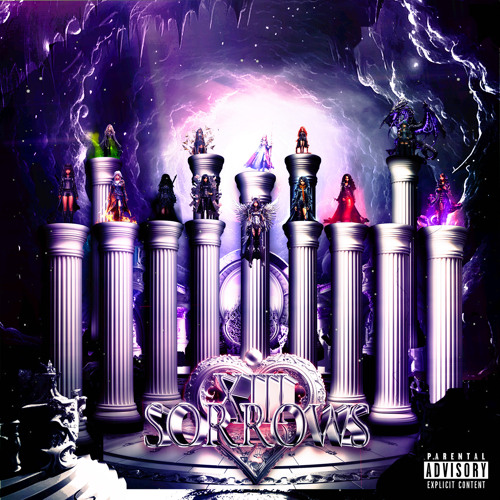The “rags to riches” story in music rings alarm bells for me. It’s a convenient narrative for the music industry to trot out every now and then to convince two different groups of people that it isn’t by its nature inherently exploitative. The first group is you — the reader. They don’t want you thinking of the music you are buying or listening to as the aural equivalent of blood diamonds. If the artist went from having nothing to having the world at their fingertips, then these large corporations get to act like benevolent facilitators instead of Lovecraftian horrors with their tendrils extending into every facet of our lives. The second group is the artists. Why would any musician sign up for exploitation? The promise of success must have real world examples to convince any would be creator that they can achieve the same, no matter the overwhelming odds are against it ever happening.
The Odetari story was just a little too convenient for me to easily believe. Every box that should make me skeptical was checked. A child of immigrants who grew up in Houston, Odetari started composing music in his bedroom when he was only 13, and while still in his teens he had progressed to making “trap rap” beats while not achieving either fame or fortune. In fact life seemed destined to draw him in an entirely different direction — teaching. According to this Billboard article, it was the boring daily routine of being an underpaid substitute educator that found him composing music and uploading tracks when he should have been nurturing the intellectual growth of his wards. Predictably he got fired, and thanks to this convenient narrative, getting fired was the best thing that could have ever happened to him.
Less than a year later the music of “XIII SORROWS” is the sound of TikTok videos and late night drug fueled parties. As much as I want to not believe the hype, and as much as I think there is an inherent danger in styling this story as “his students went from ignoring him to dancing to him,” I have to admit his music makes me a convert. The very first Odetari track I heard was “GMFU” (spoiler alert — that’s an acronym for Got Me Fucked Up), and I could immediately hear the Houston in his music. There’s a direct lineage from the early audio experiments of DJ Screw to what Taha Ahmad is doing. He plays with the tempo and pitch in mesmerizing ways. The bass beats pound your ears and the hyper modulated vocals are paired with synthetic sounds in a way that makes me describe it as “Space Invaders x emo rap.” It works incredibly well.
Game recognize game — literally — as Odetari combines the word “Odeh” with the video game company “Atari.” I’m about as far from the target demographic of his music as a listener of it could conceivably be, but those same listeners have no idea what Atari is unless they followed the Soulja Boy saga. In a lot of cases I would knock an artist for making short albums and even shorter songs, but Odetari knows how to deliver a perfect one-two punch in a couple of minutes. He warms up a track quickly, delivers a high energy dose of EDM and rap, then quickly cools you down until the next dose. It’s like training your ears for a five round MMA fight. What the fuck would I know about that? Nothing. I’m not a fighter. But my ears have been boxed by “XIII SORROWS” and instead of feeling mad about it I’m ready to go five more rounds. My balls are hot and so is Odetari’s music.

